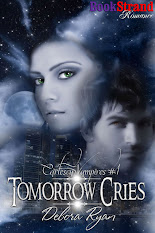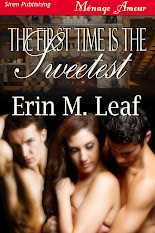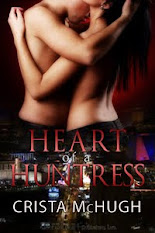Publisher: Burlesque Press
Genre: Erotica
Heat Rating: 2
Note: Not a Romance
Blurb
DISCLAIMER:
This is not a story about consensual BDSM. This is a story about “actual” slavery. If reading an erotic story without safewords makes you uncomfortable, this is not the book for you. This is a work of fiction, and the author does not endorse or condone any behavior done to another human being without their consent.
Emily Vargas has been taken captive. As part of his conditioning methods, her captor refuses to speak to her, knowing how much she craves human contact. He's far too beautiful to be a monster. Combined with his lack of violence toward her, this has her walking a fine line at the edge of sanity. Told in the first person from Emily's perspective, Comfort Food explores what happens when all expectations of pleasure and pain are turned upside down, as whips become comfort and chicken soup becomes punishment.
Denise’s Review
I mentioned in an earlier review that I am a true-crime junkie; be it cold cases or the frightening Dateline specials involving international sex trafficking, I am pretty much guaranteed to be glued to the television. Therefore, the premise of Kitty Thomas’s Comfort Food drew me in like a rubbernecker who hadn’t seen a good train-wreck in a long time.
Comfort Food gives us the rattling tale of Emily Vargas, who awakens in a cold, dark cell, bound and gagged. Her captor, a man she comes to know as Master, leads her down a dark, disturbing rabbit-hole wherein she comes to associate pain as praise for good behavior, and solitude as punishment.
This book was a psychological rollercoaster, and Emily’s deterioration from a confident, independent self-help author and spokesperson to a dependent, brainwashed captive was disturbing, but appealed to my gruesome interest in the darker portions of the human psyche. In that instance, Comfort Food works very well as a disturbing case-study of, paraphrasing Master, “something beautiful he decided to break.”
In preparing my review, I also decided to see what other readers had taken away from Comfort Food, and while there are a good many who enjoyed it for the reasons I listed above, many more came away from it with the perspective that the sexual content was “hot.” This is where I draw the line.
Before going forward, I should add that the book contains a disclaimer warning readers that the relationship and sex acts depicted are disturbing and might not be appropriate for all readers. This wasn’t my problem with the novel. The sexual aspect, regardless of its extremity, did little to shock me. As I said, it stands just fine as a psychological thrill-ride, but when psychology merged with the erotic, some plot devices became contrived.
I am aware that many female readers have a “kink” when it comes to rape fantasies, but reviewers who describe this novel as a “love story,” dark or otherwise, grossly misinterpret its content. My largest problem with Comfort Food was the thoroughly unredeemable character of Master, who was overly romanticized, and the mind-wipe of Emily, who did little to fight for her sanity even when handed the key to freedom.
Honestly, I doubt I would have had a problem with the book were it not for the last few chapters. I could relate with Emily until she refused to try to get better. The ordeal she went through required more than a month in attempted recovery, and though she pretended to reacclimatize to life outside her prison, any reader paying attention knew she wasn’t interested in getting better. And as someone who has been on medicine for seventeen years because for depression, Emily’s unwillingness to fight for her mental freedom cost her my respect, and quite frankly, made me apathetic to what happened to her in the end. I can respect that this was an extreme circumstance, but Emily was not depicted as weak until this point, rather someone who understood the mechanics of brainwashing. This much would indicate she knew what was happening inside her head wasn’t real—as do most people with a form of treatable mental illness—and give her the strength to fight back. People who want to get better go to shrinks, take their medicine, lean on others, and understand that it takes more than four weeks to undo the damage hurled at one’s psyche. It’s a long, hard fight, and returning to the cycle of destruction is the sign of someone too weak to try. Giving up is the easy way out; it might be tempting, but it will only accelerate the road to destruction.
The ending likewise reminded me of My Fair Lady. A good number of people love that Eliza returned to Henry Higgins; I was not one of them. Higgins was another unredeemable character, one who never demonstrated affection for Eliza and lived to rule every aspect of her life. Master was the extreme Henry Higgins. Let’s put it this way: I’d rather spend an evening with Hannibal Lecter.
Romanticizing kidnap and rape—regardless of how it’s presented in text—is a big no-no for me. There are ways to explore psychology and sexuality while using dark themes that maintains enough integrity to be classified as an erotic novel. This is one that tries to do both and fails. Therefore, if you’re interested in reading about someone’s destruction, Comfort Food is the book for you. If you’re looking for something erotic with likable, respectable characters, I’d read something else.
2 Tea Cups!



















































































1 comment:
Hi Denise,
I bought this one based on another review somewhere else, and I found that I could not finish it.
What you wrote is dead on and I wish I had seen your review before buying it.
Thank you for your honesty.
Ren
Post a Comment